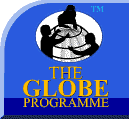Exploring Earth’s environmental systems at the GLOBE Conference
|
|
What is GLOBE? GLOBE (Global Learning and Observations to Benefit the Environment) is a worldwide hands-on, primary and secondary school-based science and education programme. GLOBE's vision is to promote and support students, teachers and scientists to collaborate on inquiry-based investigations of the environment and the Earth system, working in close partnership with NASA and NSF Earth System Science Projects in study and research about the dynamics of Earth's environment. GLOBE brings together students, teachers and scientists through the GLOBE Schools Network in support of student learning and research. The programme is divided into six consortia - North America, Latin America and the Caribbean, Africa, Europe and Eurasia, Middle East and North Africa, Asia and the Pacific. |
SAEON’s Education Outreach Coordinator Sibongile Mokoena played a significant role at the GLOBE Learning Expedition (GLE) and 12th Annual Conference held at the University of Cape Town recently.
Sibongile is the GLOBE Country Coordinator Designate for South Africa.
The GLOBE Learning Expedition was preceded by a two-day GLOBE Africa Consortium Annual General Meeting made up of Country Coordinators from Africa. Twelve member countries attended the Africa Consortium AGM. Sibongile presented the proposed national implementation plan for GLOBE South Africa to the Africa Consortium.
“After listening to country reports, it is evident that South Africa has the potential to be among the leading GLOBE countries in Africa,” says Sibongile.
Cameroon and Benin are examples of African countries where the GLOBE Programme is supported by their education ministries, hence they have successful programmes. In other countries the GLOBE Programme is attached to organisations such as nature conservation or universities. Due to this lack of involvement by governments, funding was cited as the greatest challenge facing African member countries.
Further deliberations were devoted to identifying and developing projects that focus on African issues to make GLOBE relevant to Africa. Among these were malaria, waste and pollution, floods and droughts. Invited scientists presented on the significant role of scientists in the GLOBE Programme.
GLOBE Learning Expedition Conference
The GLOBE Learning Expedition (GLE) Conference is held every 4-5 years as a platform for learners to present their research projects, learn and share their knowledge with young people from other countries. The conference was attended by 507 delegates representing 51 countries. About 300 of the representatives were learners.
At a colourful opening ceremony, Sibongile Mokoena had the elevated task of addressing and welcoming the learners to South Africa. This turned her into a celebrity, and she had to sign many autographs from learners.
Two days of the conference were devoted to learner research projects. “I was amazed and impressed by the quality of the research projects that learners are engaged in,” says Sibongile. “From these research projects one becomes aware of and is able to compare the similarities of environmental issues in the respective countries. Also of great importance is how the research projects are in line with the curricula.”
According to Dumile Tshingana, the SAEON Elwandle Node’s Education Outreach Officer, who also attended the conference, GLOBE provides students with a more integrated view of the various subjects they study and supports curricula interconnections in all learning areas. “These are very similar to the schoolyard programme initiated by SAEON in South Africa,” he says.
The days were jam packed with presentations and the evenings were used for cultural activities which were highly informative, but great fun. It was like touring all the countries of the world in a single night - tasting their wine and sweets, and experiencing their dances, music, scenery and history.
Even the Cape Town weather played along. “After several rainy and chilly days, the sun came out and we had perfect weather for the field trip,” smiles Sibongile.
Scientists accompanied the learners on field trips to wetlands, nature reserves, botanical gardens, beaches and a weather station where they conducted scientific observation and monitoring activities.
The 12th GLOBE Annual Conference
The one-day Annual Conference ran parallel to the GLE and consisted mainly of academic papers. Thomas Mtontsi, the SAEON Egagasini Node’s Education Outreach Officer gave a presentation on his learning expedition on a research vessel to Marion Island. The presentation was well received, but time unfortunately ran out and there was hardly any opportunity for questions.
“For all of us the conference was an opportunity to network and learn,” says Sibongile. “As South Africans we are proud to be associated with a very successful conference that delegates will remember for a long time to come. We showcased our country, our hospitality and our capability to organise.”
The next (13th) GLOBE Annual Conference will be held in Calgary, Canada in August 2009.






